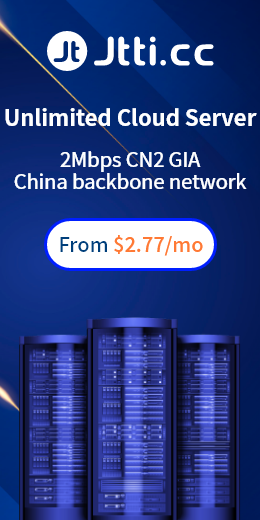Cloud servers are virtualized servers that provide more flexible resource management, allowing them to handle larger workloads. A lightweight application server is usually a physical server or virtual machine, and the resource configuration may be low, which makes it difficult to achieve rapid expansion. There are some differences between a lightweight application server and a cloud server, mainly related to their nature, purpose, and characteristics.
Nature and deployment mode:
Cloud servers: Cloud servers are virtualized servers that run on cloud infrastructure, such as a cloud provider's data center. They can be scaled up and down as needed and provide more flexible resource management.
Lightweight application servers: A lightweight application server is usually a physical server or virtual machine, and is usually deployed locally or in a dedicated data center. They may not have the flexibility of cloud servers, but they are suitable for specific purposes.
Usage and application scenarios:
Cloud servers: Cloud servers are widely used for a variety of purposes, including web hosting, application development, database servers, big data processing, and more. They are suitable for scenarios that require elastic scaling and high availability.
Lightweight application servers: Lightweight application servers are often used for specific purposes, such as single application hosting, small business networks, laboratory environments, and more. They may not be suitable for scenarios that require large-scale scaling.

Resources and Performance:
Cloud servers: Cloud servers typically offer a greater choice of resources, including different CPU, memory, storage, and bandwidth configurations. This allows them to handle larger workloads.
Lightweight application server: A lightweight application server may have a low resource configuration and is suitable for small workloads or purpose-specific scenarios.
Flexibility and scalability:
Cloud servers: Cloud servers have greater flexibility and can be dynamically scaled or scaled down as needed to adapt to changes in traffic and resource demands.
Lightweight application servers: The scalability of lightweight application servers may be limited by physical resources.
Cost and management:
Cloud servers: Cloud servers typically operate on a pay-as-you-go model, paying for resources and time used. This model can reduce initial costs, but long-term costs may be higher.
Lightweight application servers: Lightweight application servers may require a higher initial investment, but may have lower long-term operating costs, especially for long-running applications.
Management and maintenance:
Cloud servers: Cloud servers are typically managed by the cloud provider for infrastructure, including hardware, networks, and data centers. Users are primarily concerned with applications and data.
Lightweight AS: Users or enterprises are responsible for the management and maintenance of lightweight AS, including hardware maintenance, security, and patch management.
In summary, lightweight application servers are suitable for specific purposes and small-scale environments, usually for scenarios with low resource requirements. Cloud servers are more suitable for applications and businesses that require flexibility, elastic scaling, high availability, and greater resource allocation. Which server type you choose depends on your needs, budget, and long-term strategy.

 EN
EN
 CN
CN









